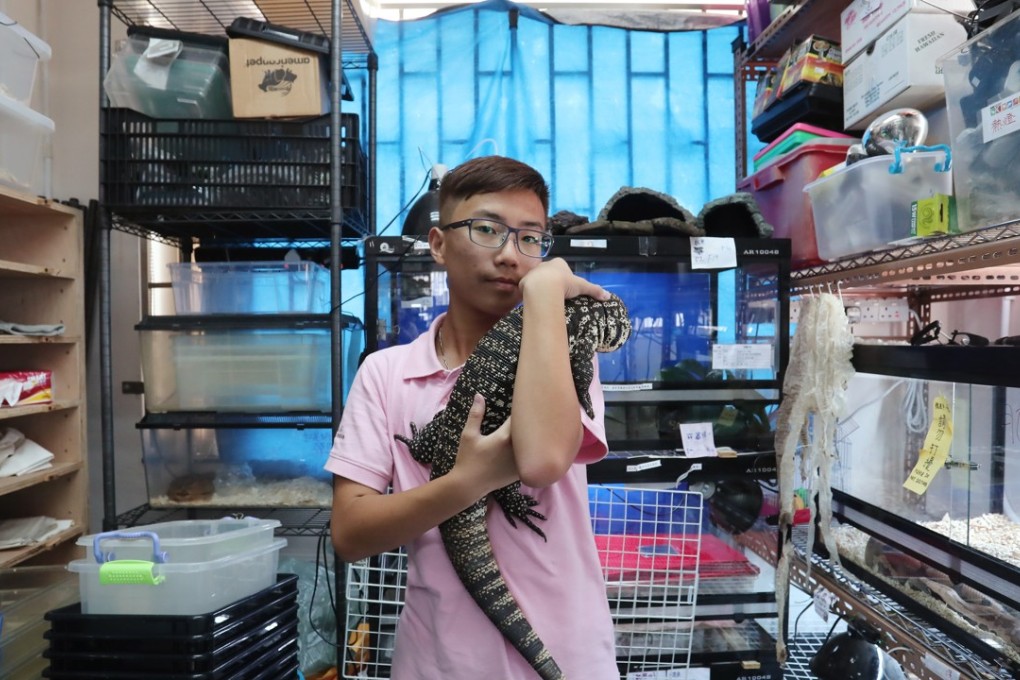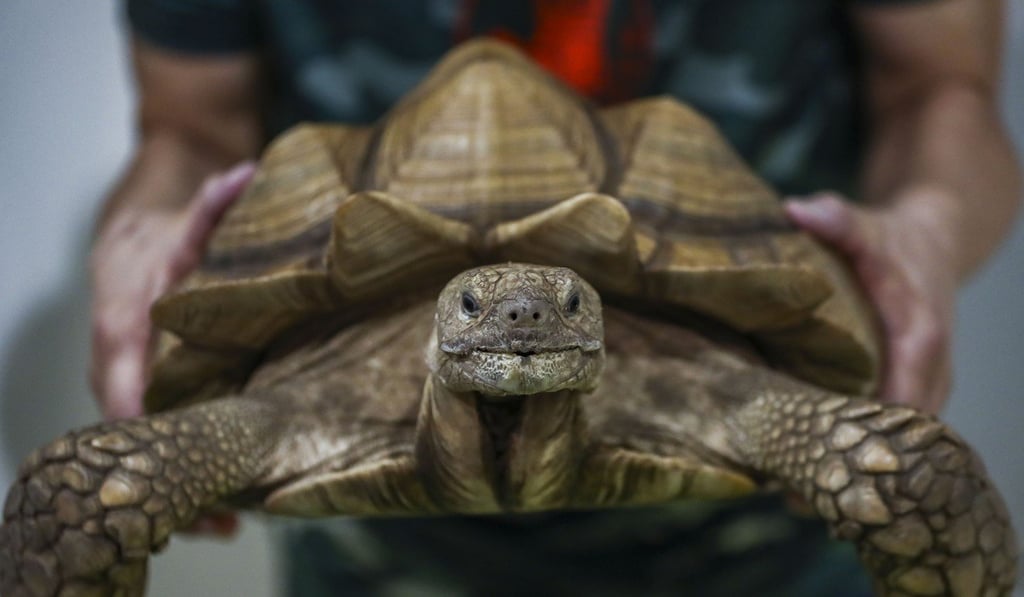Why are more Hongkongers going wild for exotic pets?
Experts warn against a rising trend in space-starved city where inexperienced owners take in unusual breeds only to abandon them later, and laws remain murky on species protection

For 16-year-old Victor Wong Long-in, home is where the heart is, and also where his six turtles, five horned frogs, four house geckos, a ball python and a corn snake reside. The high-school student shares his 800 sq ft flat in Hong Kong with his parents and a mini zoo.
An aquarium and a wooden cabinet – which hold his unusual pets – dominate their living room, and he keeps these carefully locked.
“Everyone knows I am into reptiles especially,” Wong says. “I treat them as my family.”

Wong is part of a rapidly expanding community of people in Hong Kong who keep non-traditional pets – from small pythons and odd-looking frogs to squirrel-like marsupials such as sugar gliders.
Latest government figures show that the number of exotic animals legally imported for sale as pets more than doubled, rising from 497,000 in 2012 to more than 1 million in 2016.
Fiona Woodhouse, deputy director of welfare at the Society for the Prevention of Cruelty to Animals (SPCA), Hong Kong’s leading animal welfare charity, says: “In Hong Kong, the exotic animal industry is fuelled by a trade that is murky and largely unregulated.